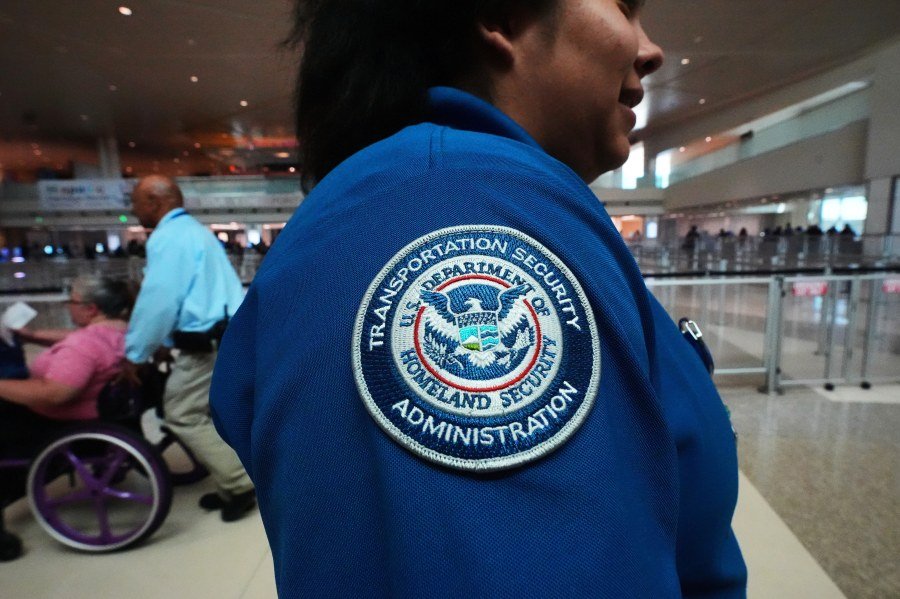
The government shutdown is entering its third week. Posturing and finger-pointing by both parties has yielded little so far.
Though around 750,000 government employees have been furloughed, many more are classified as essential workers — meaning they must remain on the job without a paycheck to show for it. Though all these people are expected to get paid eventually, the fact that around 18 percent of the population lives paycheck to paycheck suggests that some of these people may be struggling to pay bills and cover essential expenses.
Transportation Security Administration officers and Federal Aviation Administration air traffic controllers are both classified as essential workers, since their roles are deemed critical to keep the national airspace system secure, safe and operational. As the shutdown continues, TSA officers and air traffic controllers will come under increasing stress and could start missing work, perhaps calling in sick at a higher rate than what one would expect.
Since their tasks must still be done to keep the national airspace system operating, others must step up to fill the void.
If the bench of available people becomes exhausted, airport security lanes may have to be shut down, which can slow airport security screening operations. With air traffic controllers, flights may end up being delayed or cancelled, to reduce the volume of airplanes that can be safely managed around airports.
For large hub airports around the Northeast Corridor, volume reductions required to maintain safety invariably leads to flight cancellations and delays. In smaller airports around the nation, where there are fewer staffing backups, operations may need to be temporarily shut down. These are rare events but can certainly occur in extreme situations, as they did recently.
Though it is easy to connect the dots and blame the government shutdown for all such disruptions, this is an oversimplification.
Around 76 percent of the major U.S. carrier flights were on time in the first half of 2025, defined as arriving within 15 minutes of their scheduled arrival time. With around 19,000 flights per day operated by these carriers, this means that around 4,500 of their flights per day did not arrive on time. The number of flights now being reported as delayed or canceled is consistent with such averages.
The national airspace system is a complex network of organizations. The FAA, TSA, commercial airlines, airplane manufacturers and numerous other private and public entities all contribute to national airspace system operations, safety and security. If any organization is compromised, its impact on the others in the network can have unpredictable consequences.
Air traffic controllers sit at the forefront of operations within the national airspace system. They are the behind-the-scenes unsung heroes of air travel, bringing calm to what could be a chaotic and risky environment. Their training and standards ensure that every flight under their watch reaches its final destination safely and with the greatest chance to arrive on time.
Despite the importance of air traffic controllers, they are required to use antiquated technologies that make their job harder than necessary. The shutdown that occurred at Newark International earlier this year was attributed to failed copper wiring used to facilitate communication. This prompted calls for swift and aggressive changes to upgrade the air traffic control infrastructure. Yet without the necessary funding, estimated to be more than $31 billion, such changes will be slow to come — and air traffic control towers will continue to be short-staffed, as more air traffic controllers will be needed to oversee a continuously expanding volume of air traffic.
The government shutdown has exposed the weak belly of air traffic control operations and its reliance on outdated technologies. Air traffic controllers do an outstanding job given the circumstances. Yet without an upgraded hardware and software infrastructure, air traffic control operations will continue to do just enough to keep the system safe and functional — but not enough to permit it to enhance and facilitate untapped air traffic management efficiencies.
It is easy to point to the government shutdown as the root cause of air travel delays and cancellations. What the shutdown has done is amplify what is already broken in the air traffic control system, and what air traffic controllers must work with each day.
Though such problems will not be resolved quickly, one thing Congress can do once the government reopens is pass a law such that if government shutdowns occur again, essential workers should all be paid in real time. If their work is indeed essential, then paying them should also be deemed essential.
Sheldon H. Jacobson, Ph.D., is a computer science professor in the Grainger College of Engineering at the University of Illinois Urbana-Champaign. As a data scientist, he uses his expertise in risk-based analytics to address problems in public policy.





